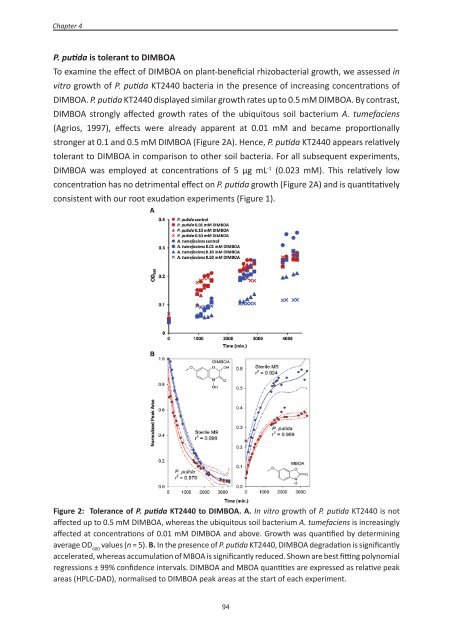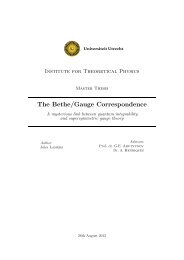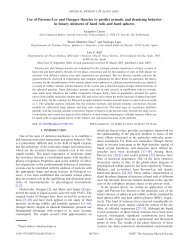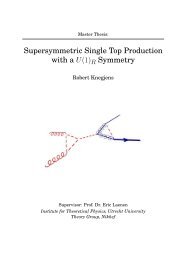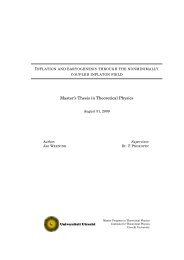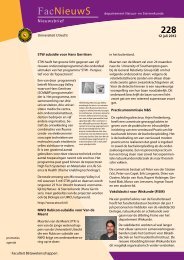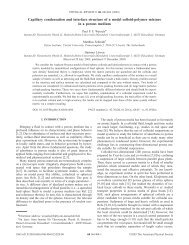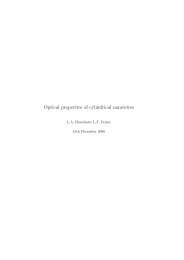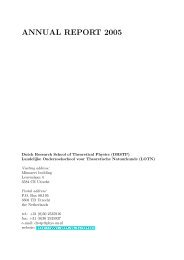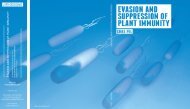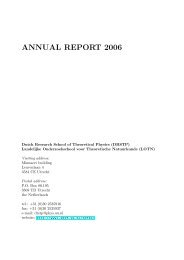Plant basal resistance - Universiteit Utrecht
Plant basal resistance - Universiteit Utrecht
Plant basal resistance - Universiteit Utrecht
Create successful ePaper yourself
Turn your PDF publications into a flip-book with our unique Google optimized e-Paper software.
Chapter 4<br />
P. putida is tolerant to DIMBOA<br />
To examine the effect of DIMBOA on plant-beneficial rhizobacterial growth, we assessed in<br />
vitro growth of P. putida KT2440 bacteria in the presence of increasing concentrations of<br />
DIMBOA. P. putida KT2440 displayed similar growth rates up to 0.5 mM DIMBOA. By contrast,<br />
DIMBOA strongly affected growth rates of the ubiquitous soil bacterium A. tumefaciens<br />
(Agrios, 1997), effects were already apparent at 0.01 mM and became proportionally<br />
stronger at 0.1 and 0.5 mM DIMBOA (Figure 2A). Hence, P. putida KT2440 appears relatively<br />
tolerant to DIMBOA in comparison to other soil bacteria. For all subsequent experiments,<br />
DIMBOA was employed at concentrations of 5 μg mL -1 (0.023 mM). This relatively low<br />
concentration has no detrimental effect on P. putida growth (Figure 2A) and is quantitatively<br />
consistent with our root exudation experiments (Figure 1).<br />
Figure 2: Tolerance of P. putida KT2440 to DIMBOA. A. In vitro growth of P. putida KT2440 is not<br />
affected up to 0.5 mM DIMBOA, whereas the ubiquitous soil bacterium A. tumefaciens is increasingly<br />
affected at concentrations of 0.01 mM DIMBOA and above. Growth was quantified by determining<br />
average OD 600 values (n = 5). B. In the presence of P. putida KT2440, DIMBOA degradation is significantly<br />
accelerated, whereas accumulation of MBOA is significantly reduced. Shown are best fitting polynomial<br />
regressions ± 99% confidence intervals. DIMBOA and MBOA quantities are expressed as relative peak<br />
areas (HPLC-DAD), normalised to DIMBOA peak areas at the start of each experiment.<br />
94


